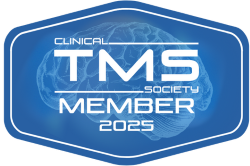The Mental Load of Motherhood: Why Now’s the Time to Focus on You
August 18, 2025
The truth that mothers carry but never say outloud

In this article, you'll discover:
- Why the mental load of motherhood is literally rewiring your brain for anxiety and overwhelm
- The specific neurological changes that happen when you're constantly managing everyone else's needs
- Real stories of mothers who found relief through innovative brain-based treatments
- Practical steps you can take to reclaim your emotional bandwidth without guilt or years of traditional therapy
________
I was sitting in my office last week when Sarah walked in—you know Sarah, right? Every clinic has one. Immaculate on the outside, total chaos on the inside. Designer handbag, perfect blowout, that smile that says "everything's fine" while her hands shake from too much coffee and not enough sleep.
She'd been my patient for three years. Always came in for everyone else—her kids' sports physicals, her husband's blood pressure refills, her mother's diabetic monitoring. But never for herself. Never.
"So what brings you in today?" I asked, already knowing the answer would be something like a routine check-up or maybe some vague complaint about fatigue.
Instead, she looked at me and said, "I think I'm losing my mind."
And there it was. The truth that mothers carry but never say out loud.
Look, I'm a mother myself. Two kids, a medical practice, a business to run. I get it. The mental load isn't just remembering to buy milk or scheduling dentist appointments. It's the constant background hum of responsibility that never turns off.
You're managing everyone's emotional needs, schedules, social calendars, dietary preferences, growth spurts, friendship drama, screen time limits, bedtime routines, and somehow you're supposed to keep yourself together while doing it all with a smile.
Sarah told me she wakes up at 5 AM with her brain already running through the day's logistics. "It's like I have seventeen browser tabs open in my head, and they're all playing different music," she said. "And I can't figure out how to close any of them."
That's when I knew we were dealing with something bigger than just being "busy."
Here's what really pisses me off about the way we talk about motherhood—this idea that if you're struggling, you just need better organization systems or more self-care bubble baths.
I've seen too many mothers in my practice who are drowning in anxiety and depression while everyone around them thinks they're crushing it. They're the PTA presidents with panic attacks. The soccer moms who cry in their cars after drop-off. The working mothers who smile through Zoom calls while feeling like complete frauds.
Sarah was one of those mothers.
"I feel like I'm failing at everything," she told me. “What the hell is wrong with me?"
Nothing was wrong with her. Everything was wrong with the expectation that mothers should be able to handle infinite mental load without breaking.
The Science Behind the Breaking Point
Let me tell you what's actually happening in your brain when you're managing the mental load of motherhood—because understanding this changed everything for me.
The part of your brain responsible for decision-making, planning, and emotional regulation, is working overtime. Like, seriously overtime. Every decision, no matter how small, requires mental energy. Whether that cough needs a doctor's visit. Whether you should push back on that teacher's email or let it slide.
Meanwhile, your amygdala—your brain's alarm system—is constantly scanning for threats. Is my kid eating enough vegetables? Are they being bullied? Did I remember to submit that permission slip? The alarm never stops ringing.
Your brain literally gets stuck in survival mode. And when you're in survival mode for months or years, something's gotta give.
That's exactly what happened to Sarah. And it's what happens to so many mothers who end up in my office with symptoms they can't quite name—the constant worry, the irritability, the feeling like they're just going through the motions.
If I'm being completely honest here, I went through this same thing myself.
I was managing my medical practice, building Kind Health Group and KIND TMS, raising two kids, trying to be a good business owner, a good boss, a good friend. I thought I was handling it all pretty well until one morning I woke up and realized I couldn't remember the last time I'd felt genuinely happy about anything.
I was functional, I was high-functioning. But I was also irritable, anxious, and completely overwhelmed by the smallest decisions. My brain felt like it was running on dial-up while everyone else needed high-speed internet.
I tried all the usual stuff. But nothing touched the underlying problem—my nervous system was completely fried from carrying too much for too long.
That's when I tried TMS myself.
What TMS Actually Does for the Overwhelmed Brain
Here's the thing about TMS that changed everything for me professionally and personally—it works on the exact brain circuits that get overwhelmed by chronic mental load.
The left dorsolateral prefrontal cortex, where we target the magnetic pulses, is basically command central for executive function. It's responsible for working memory, cognitive flexibility, and emotional regulation. When you're constantly managing competing demands and making hundreds of micro-decisions every day, this area gets exhausted.
TMS essentially gives your prefrontal cortex a reset. It's like rebooting your computer when it's been running too many programs for too long.
For mothers specifically, this translates to:
Better emotional regulation, you don't lose it when your kid spills juice on the carpet you just cleaned.
Improved cognitive flexibility, you can switch between tasks without feeling like your brain is melting.
Reduced anxiety, the constant background worry finally quiets down.
Better decision-making, choosing what to make for dinner doesn't feel like a monumental task.
Enhanced focus, you can actually finish a thought without getting interrupted by seventeen other concerns.
After Sarah's KIND One-Day TMS Protocol, she described it perfectly: "It's like someone turned down the volume on my anxiety. I can still hear it, but it's not drowning out everything else anymore."
She started sleeping through the night for the first time in years. She stopped checking her phone obsessively. She could sit through her daughter's piano recital without mentally running through her grocery list.
But the biggest change? She stopped feeling guilty about taking up space in her own life.
"I realized I'd been living like I was an afterthought in my own family," she told me months later. "I was managing everyone else's needs while completely ignoring my own. TMS didn't just treat my anxiety—it gave me permission to matter again."
The Revolution Mothers Need
Here's what I want every exhausted mother to understand: You don't have to live like this.
The mental load that's crushing you isn't your fault. It's the result of a system that expects women to be the emotional and logistical CEOs of their families while pretending it's no big deal.
But your brain has limits. And when you push past those limits for too long, your nervous system starts rebelling. The anxiety, the irritability, the feeling like you're barely keeping your head above water—that's not weakness. That's biology.
Traditional therapy helps, but it takes time. Medications can help, but they often come with side effects that make you feel like a different person. TMS offers something different—a way to reset your overwhelmed nervous system without numbing yourself or spending years unpacking every childhood trauma.
The mothers I treat with TMS don't just get relief from their symptoms. They get their lives back.
They stop snapping at their kids over minor annoyances. They can enjoy family dinner without mentally planning tomorrow's schedule. They remember what it feels like to laugh without feeling guilty about it.
Most importantly, they model something different for their children—the idea that mothers are whole people with their own needs, not just service providers for everyone else's happiness.
If you're reading this and thinking, "This sounds like me, but I don't have time for treatment," I need you to stop right there.
You don't have time NOT to take care of yourself.
The mental load you're carrying is unsustainable. Your family needs you to be healthy, regulated, and present—not just functional.
The KIND One-Day TMS Protocol was designed specifically for people like you—mothers who can't disappear for six weeks of treatment but desperately need relief. One day. That's all it takes to start rewiring those overwhelmed circuits.
You've spent years taking care of everyone else. Isn't it time you took care of yourself?
Because here's the truth I wish someone had told me earlier: When you heal your own overwhelmed nervous system, you don't just help yourself. You break the cycle for everyone in your family.
Your kids get a calmer mother. Your partner gets a happier wife. And you? You get to remember who you are underneath all that mental load.
That's the kind of moment that becomes possible when we stop accepting "barely surviving" as good enough.
You deserve more than survival mode. You deserve to thrive.
And it's closer than you think.

Meet the Author
Dr. Georgine Nanos, MD, MPH
Founder of Kind Health Group







